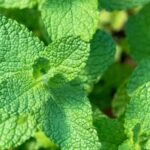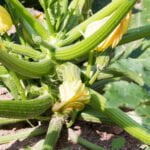What’s the best manure for vegetable gardens? Manure plays a crucial role in the success of vegetable gardening, providing essential nutrients and improving soil structure.
Understanding the different types of manure available, their benefits, and how to properly apply them can make a significant difference in the health and productivity of your vegetable plants. This article will explore the importance of manure in vegetable gardening, the various types of manure to consider, as well as provide tips on sourcing high-quality manure and avoiding common mistakes.
Manure serves as a valuable source of organic matter and nutrients for vegetable gardens, aiding in the overall health and growth of plants. By exploring the different options available for vegetable gardens, gardeners can make informed decisions on which type of manure is best suited for their specific needs. Additionally, understanding the benefits of using manure, such as improved soil fertility and water retention, will highlight its importance in maintaining a thriving vegetable garden.
Furthermore, this article will also discuss the best manure for specific vegetables, addressing how certain types of manure may be more suitable for specific plant varieties. By understanding which manure works best for different types of vegetables, gardeners can optimize their choice of fertilizer to ensure optimal growth and yield.
Whether you are new to vegetable gardening or looking to improve your current practices, knowing which manure is most effective for your crops is essential information that this article aims to provide.
Types of Manure
When it comes to choosing the best manure for your vegetable garden, there are several options available, each with its own set of advantages and disadvantages. Some of the most commonly used types of manure for vegetable gardens include cow, horse, chicken, and composted manure.
Cow manure is high in organic matter and nutrients, making it a great choice for overall soil improvement. Horse manure is also beneficial for vegetable gardens as it adds organic matter and nutrients to the soil, but it should be aged or composted before use to avoid potential weed seeds.
Chicken manure is known for being high in nitrogen, phosphorus, and potassium, making it an excellent choice for leafy green vegetables that require lots of nutrients to grow. Composted manure has the advantage of being well-aged and broken down, which means it’s less likely to burn plants and is easier to handle.
In addition to these options, there are other types of animal manure that can be beneficial for vegetable gardens, such as rabbit or goat manure. Each type of manure has its own unique benefits and considerations when used in a vegetable garden. It’s important to consider the specific needs of your plants when choosing the best manure for your garden.
| Type of Manure | Benefits |
|---|---|
| Cow | High in organic matter and nutrients |
| Horse | Adds organic matter and nutrients to the soil; should be aged or composted before use |
| Chicken | High in nitrogen, phosphorus, and potassium; great for leafy green vegetables |
Benefits of Using Manure
When it comes to vegetable gardening, the use of manure can have a significant impact on the health and yield of the plants. Manure is a valuable source of nutrients for vegetable plants, providing essential elements such as nitrogen, phosphorus, and potassium. These nutrients are crucial for promoting healthy growth, strong roots, and vibrant produce. Additionally, manure helps improve soil structure and water retention, creating an optimal environment for vegetable plants to thrive.
One of the key benefits of using manure in vegetable gardens is its ability to enhance soil fertility. The nutrients found in manure contribute to the overall health of the soil, ensuring that it remains rich and fertile for plant growth. Furthermore, the organic matter in manure improves soil structure, making it more conducive to root development and nutrient absorption by the plants.
In addition to its role in soil fertility, using manure in vegetable gardens also promotes sustainability and environmental consciousness. By utilizing natural sources of nutrients like manure instead of relying solely on synthetic fertilizers, gardeners can reduce their environmental impact and maintain a more balanced ecosystem. This approach also minimizes the risk of chemical runoff into water sources, ultimately benefiting both the garden and the surrounding environment.
| Benefits of Using Manure | Impact |
|---|---|
| Enhances soil fertility | Promotes healthy plant growth |
| Improves soil structure | Contributes to sustainability |
Best Manure for Specific Vegetables
When it comes to choosing the best manure for specific vegetables, it’s essential to consider the unique needs of each type of plant. Different vegetables require different nutrients and soil conditions to thrive, so selecting the right manure is crucial for optimal growth and yield.
Chicken Manure for Leafy Greens
Leafy greens such as lettuce, spinach, and kale thrive with a nitrogen-rich fertilizer like chicken manure. This type of manure provides the necessary nutrients for healthy leaf development and overall plant growth. However, it’s important to compost chicken manure before applying it to vegetable gardens to avoid burning the plants with its high nitrogen content.
Cow Manure for Root Vegetables
Root vegetables like carrots, beets, and potatoes benefit from the use of cow manure. Cow manure is rich in organic matter and provides a good balance of nutrients needed for root development. It also helps improve soil structure and water retention, creating an ideal environment for root vegetable growth.
Horse Manure for Fruit-Bearing Plants
For fruit-bearing plants such as tomatoes, peppers, and cucumbers, horse manure can be an excellent choice. Horse manure contains a lower level of nitrogen compared to other types of manure, making it suitable for plants that require a moderate nutrient supply. Its high organic matter content also contributes to improved soil quality and drainage.
By understanding which type of manure works best for specific vegetables, gardeners can make informed decisions about fertilizing their vegetable gardens. It’s important to research individual plant requirements and consider factors such as nutrient levels, composting requirements, and potential risks before using any type of manure in the garden.
How to Apply Manure to Vegetable Gardens
When it comes to applying manure to your vegetable garden, there are a few key steps to follow in order to ensure optimal results. Here is a step-by-step guide on the proper application of manure:
1. Prepare the soil: Before applying manure, it’s important to prepare the soil in your vegetable garden. This may involve tilling the soil, removing any debris, and ensuring that the area is ready for planting.
2. Determine the appropriate amount: The amount of manure needed will depend on the size of your vegetable garden and the specific needs of the plants you are growing. It’s important to not overapply manure, as this can lead to nutrient imbalances in the soil.
3. Apply the manure: Once you have determined the appropriate amount of manure needed, it’s time to apply it to your vegetable garden. You can either spread the manure evenly across the soil by hand or use a spreader for larger areas.
4. Incorporate the manure into the soil: After applying the manure, it’s important to incorporate it into the soil. This can be done by gently tilling or raking the soil to mix in the manure.
5. Water thoroughly: Once the manure has been incorporated into the soil, water your vegetable garden thoroughly. This will help to activate and distribute nutrients from the manure into the soil where plant roots can access them.
By following these steps, you can ensure that your vegetable garden receives an adequate and beneficial application of manure for healthy plant growth and abundant harvests.
Composting Manure
- Begin by creating a designated composting area in your garden or backyard. This can be a simple pile or a compost bin specifically designed for this purpose.
- Layer the raw manure with other organic materials such as straw, leaves, and kitchen scraps. This will help balance the carbon and nitrogen ratios, aiding in the decomposition process.
- Turn the compost regularly to ensure proper aeration and mixing of materials. This will speed up the decomposition process and prevent any foul odors from developing.
- Keep the compost moist, but not waterlogged, as too much moisture can impede the breakdown of materials.
- Monitor the temperature of the compost pile – it should reach at least 140°F (60°C) to kill off any potential pathogens.
Composting manure not only transforms it into a valuable soil amendment but also reduces the risk of introducing harmful bacteria into your vegetable garden. By following these steps, you can ensure that your composted manure is safe and beneficial for your crops.
When considering what’s the best manure for vegetable gardens, it’s important to remember that well-composted manures tend to be less “hot” than fresh ones, making them safer and more effective as fertilizers for your plants.
Organic Manure vs Synthetic Manure
When it comes to choosing the best manure for vegetable gardens, one of the key decisions you’ll need to make is whether to use organic or synthetic manure. Both options have their own set of advantages and disadvantages, and understanding these can help you make an informed decision for your garden.
Advantages of Organic Manure
Organic manure, such as composted animal waste or plant-based materials, is often favored by organic gardeners due to its numerous benefits. One of the main advantages of organic manure is its ability to improve soil structure and fertility over time.
It also contains valuable nutrients that are slowly released into the soil as it breaks down, providing a long-lasting source of nourishment for vegetable plants. Additionally, organic manure can help increase beneficial microbial activity in the soil, which can aid in nutrient uptake by plants.
Disadvantages of Organic Manure
Despite its benefits, there are some potential drawbacks to using organic manure in vegetable gardens. One issue is that organic manure may contain weed seeds or pathogens if not properly composted, which could lead to unwanted plants growing in your garden or the spread of diseases. Additionally, sourcing high-quality organic manure can be a challenge for some gardeners, as it may not be readily available or could come with a higher price tag compared to synthetic options.
Advantages of Synthetic Manure
Synthetic or chemical fertilizers are another option for vegetable gardeners looking to boost plant growth and yields. One of the main advantages of synthetic manure is its immediate availability to plants – the nutrients it contains can be readily absorbed after application. These fertilizers are also typically formulated with specific ratios of nutrients, allowing for precise control over what’s being added to the soil.
Tips for Sourcing Manure
When it comes to sourcing manure for vegetable gardens, it’s important to consider the quality and type of manure you are using. One of the best options is well-rotted farmyard manure, as it is rich in essential nutrients and has undergone the decomposition process, making it safe and beneficial for your vegetable plants.
You can often find this type of manure at local farms or garden centers, but be sure to ask about its age and composition before purchasing.
Another excellent source of high-quality manure is from livestock farms, such as cow or horse stables. The manure from these animals is packed with beneficial nutrients that can improve soil fertility and plant growth. Some farms may even offer aged or composted manure that is ready for use in vegetable gardens. It’s important to inquire about any potential additives or medications that may have been given to the animals, as these could affect the quality of the manure.
If you’re looking for an organic option, consider reaching out to local organic gardening associations or community gardens. These organizations often have access to well-composted organic materials, including manure, that they may be willing to share or sell at a reasonable price. By sourcing your manure from these reputable sources, you can ensure that you are using high-quality, nutrient-rich materials in your vegetable garden.
In addition to these options, you can also explore the possibility of creating your own compost pile with kitchen scraps and yard waste. Composting not only reduces waste but also produces nutrient-rich material that can be used as an excellent alternative to traditional manures. Regardless of where you source your manure from, always remember to thoroughly research and inquire about its composition and any potential contaminants before using it in your vegetable garden.
Common Mistakes to Avoid When Using Manure in Vegetable Gardens
In conclusion, proper and efficient use of manure in vegetable gardens is essential for the successful growth of a variety of vegetables. Understanding the different types of manure available and their benefits helps to ensure that the right choice is made for each specific vegetable. It’s important to consider factors such as nutrient content, application method, and potential risks when using manure.
When it comes to choosing the best manure for vegetable gardens, it’s crucial to take into account the specific needs of each type of vegetable. Certain vegetables may thrive with one type of manure while others may require a different kind. Additionally, understanding how to properly apply and compost manure can make a significant difference in the overall health and yield of your vegetable plants.
Whether sourcing organic or synthetic manure, it’s important to prioritize quality in order to avoid potential pitfalls. By avoiding common mistakes such as over-applying or under-composting manure, gardeners can maximize the benefits and minimize any negative impact on their vegetable gardens. Ultimately, taking the time to educate oneself on the best practices for using manure in vegetable gardening is key to achieving optimal results.
Frequently Asked Questions
What Kind of Manure Is Best for Vegetable Gardens?
The best manure for vegetable gardens is well-aged animal manure, such as horse or cow. This type of manure has had time to break down and release nutrients, making it safe for vegetables.
Is Cow or Chicken Manure Better for Vegetable Gardens?
Both cow and chicken manure can be beneficial for vegetable gardens, but they have different nutrient levels. Chicken manure is higher in nitrogen and phosphorus, while cow manure has a more balanced nutrient profile. It ultimately depends on the specific needs of your vegetable garden.
What Vegetables Don’t Like Manure?
Some vegetables do not thrive when grown in soil amended with fresh manure, as it can lead to an excess of nitrogen that negatively impacts their growth and flavor. These vegetables include root crops like carrots, potatoes, and radishes. It’s important to use caution when applying manure to certain plants to avoid potential harm.

If you’re looking to get into vegetable gardening, or are just looking for some tips on how to make your current garden better, then you’ve come to the right place! My name is Ethel and I have been gardening for years. In this blog, I’m going to share with you some of my best tips on how to create a successful vegetable garden.





